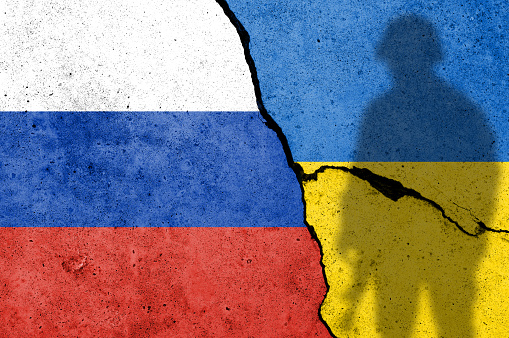
Friday Roundup: Fed hints at rate hikes in March despite conflict in Ukraine; US and UK sanctions against Russia
Fed: Officials point to interest rate hikes in March despite conflict in Ukraine
Federal Reserve officials have signaled that they remain on track to raise interest rates next month despite the uncertainty imposed on the global economy by Russia’s invasion of Ukraine.
While acknowledging the risks created by the conflict, which triggered one of the worst security crises in Europe since World War II and sent oil prices soaring, US central bank officials stressed the need to tackle higher inflation in the USA in 40 years.
“Barring an unexpected turn in the economy, I believe it will be appropriate to raise the rate in March and follow up with further increases in the coming months,” Cleveland Fed Chair Loretta Mester said Thursday at an event hosted by Lyons Companies and by the University of Delaware.
“The implications of the unfolding situation in Ukraine for the medium-term economic outlook in the US will also be considered in determining the appropriate pace to remove accommodation,” she said.
Ready to engage
Prior to the Russian invasion, Fed officials vigorously signaled their readiness to raise rates at their March 16 meeting in order to tackle inflation.
Mester was among Fed officials scheduled to speak publicly on Thursday and his sentiment was echoed by Atlanta President Raphael Bostic, who said he still expected a rate hike in March, provided the economy evolved as he anticipated.
“If the numbers come close to that, I think we can continue with our takeoff plan,” he said at the Atlanta Fed conference. “We just have to see where things go. I know that in the last few weeks we have seen oil prices increase dramatically, as well as natural gas. This could have ripples.”
Traders and economists still see the Fed starting a rate hike in March, though geopolitical risks make a half-percentage-point move less likely. Interest rate futures show that a 0.25 pp rise next month is more than fully priced.
Rising energy costs could drive inflation even higher, though the Fed typically looks at what that means for household spending — with higher oil prices hitting American pockets, and dampening demand.
70’s shock
But the lessons of the 1970s oil shock are likely to weigh on policymakers as well.
Earlier on Thursday, Richmond Fed chief Thomas Barkin said “time will tell” whether Ukraine changes outlook while asserting his inclination to begin normalizing policy to combat price pressures.
US and UK sanctions against Russia
The United States and the United Kingdom imposed more sanctions on Russia after President Vladimir Putin invaded Ukraine. The European Union will announce its decision later. The measures were taken amid fears that Kyiv could collapse in a few hours.
US Sanctions
The Treasury said it would target “almost 80% of all bank assets in Russia”.
- Target Russia’s two largest financial institutions: Public Joint Stock Company Sberbank and VTB Bank Public Joint Stock Company.
- “Blocking sanctions” for three other Russian banks: Otkritie, Novikom, and Sovcom.
- Debt and equity bans against large state and private entities.
- Targeting Russian nationals close to Putin and part of the Russian elite:
- Alexander Aleksandrovich Vedyakhin, First Vice President of Sberbank
- Andrey Sergeyevich Puchkov and Yuriy Alekseyevich Soloviev: Two Senior Executives at VTB
- The White House made it clear that it would try to prevent oil prices from rising by releasing emergency reserves with international partners and avoiding sanctions on energy transactions..
President Joe Biden, in his address to the nation, says cutting off Russia’s access to Swift technology “is always an option, but right now that’s not the position the rest of Europe wants to take.”
UK Sanctions
Prime Minister Boris Johnson has unveiled the UK’s longest list of sanctions against Russia, targeting the country’s banks, billionaires, and the country’s national air carrier in response to the Ukraine invasion.
- Asset freeze against all major Russian banks, including an immediate freeze on Thursday against VTB, Russia’s second-largest bank.
- Legislation to prevent all major Russian companies from obtaining funding in UK markets and also to prohibit the Russian state from raising sovereign debt in UK markets. The new law will come into force next Tuesday (3/1).
- Sanctions on more than 100 individuals, entities, and their subsidiaries, including Rostec, Russia’s largest defense company. individuals include:
- Kirill Shamalov, Russia’s Youngest Billionaire and Putin’s Ex-Son
- Petr Fradkov, head of Promsvyazbank (already sanctioned) and son of former FSB head
- Denis Bortnikov, vice president of the VTB
- Yury Slyusar, Director of United Aircraft
- Elena Georgieva, chairman of the board of Novicom Bank
- Imminent ban on the landing of Aeroflot planes in the UK.
- Immediate ban on all exports of goods that may have military use, such as electrical components and truck parts..
- Legislation to ban a range of high-tech export products such as semiconductors and aircraft parts, as well as goods for extractive industries such as oil refinery equipment, to be enacted in a matter of days.
- Limitation of deposits by Russian citizens into UK bank accounts to £50,000 ($67,000).
- All sanctions also apply to Belarus.
- Accelerated passage of an economic crimes bill targeting illicit Russian money in the UK.